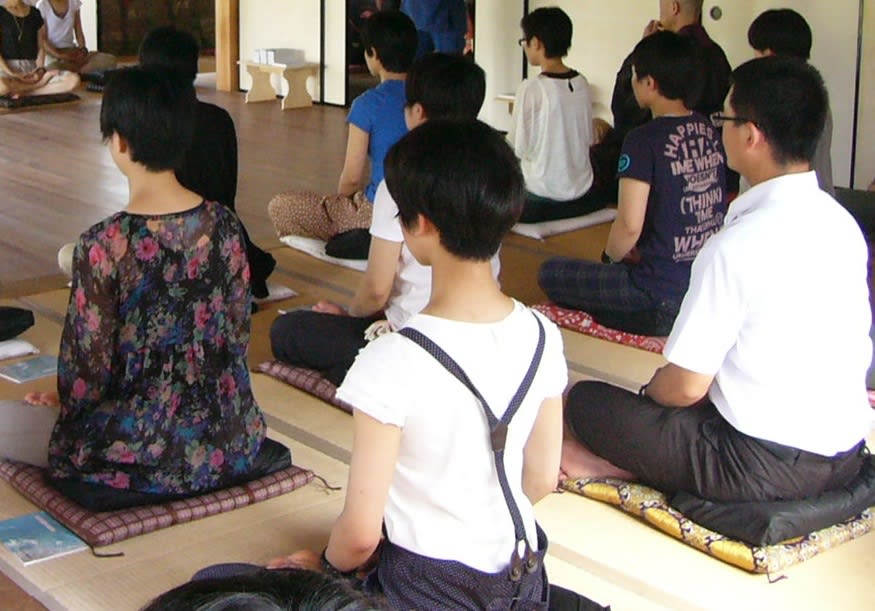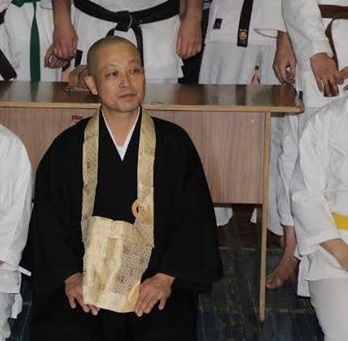Jyhi -mercy
Jyhi means deep affection. Avalokitesvara -Kwannon represents deep affection of Buddha. Most of Kwannon statues look like mother’s form in Japan. That is the reason why mother’s affection for their children is pure and close to Buddha’s mercy. And further, offering this pure affection to the world is called Jyhi.
Originally, Jyhi was the word of which Maitry and Karuna in the Buddhism teaching were combined. In ancient India, Maitry meant deep friendship and Karuna meant a groan in Hindi. Buddha’s mercy is the affection that we stand on other person's situation and communicate to them wholeheartedly.
Can we understand other person's agonies and sufferings? Can we recognize the wounded groaning? We will be able to grasp them if we have the same experience of others. We call the affection that understands other person's sufferings, "Karna".
Let's think about the matters on the same situation of other person especially in some volunteer works, welfare, some relief works, some bullying problems and so on.
「慈 悲」
慈悲は深い愛情という意味です。観音さまは仏さまの深い愛情をそのお姿に現しています。日本の観音像はお母さんの姿に似せてある像が多くあります。それは母親の子供に対する愛情は純粋で、仏さまの慈悲に近いからだといわれています。その純粋な愛情を世の中に広く向けることを慈悲と呼びます。 慈悲はもとをたどればインドのことばで深い友情を表す「マイトリ-」(慈)と、うめき声を表す「カルナ-」(悲)とが一緒になったことばです。仏さまの愛情は同じ目線に立った心の通い合う愛情です。私たちは他の人の痛みがわかるでしょうか。他の人のうめき声がわかるでしょうか。自分に同じ経験があれば分かるでしょう。人の苦しむ声を感じることができる愛情を「カルナ-」(悲)と呼びます。ボランティア、福祉、援助、被害者救済、いじめ問題、すべて同じ目線に立ってみましょう。






























